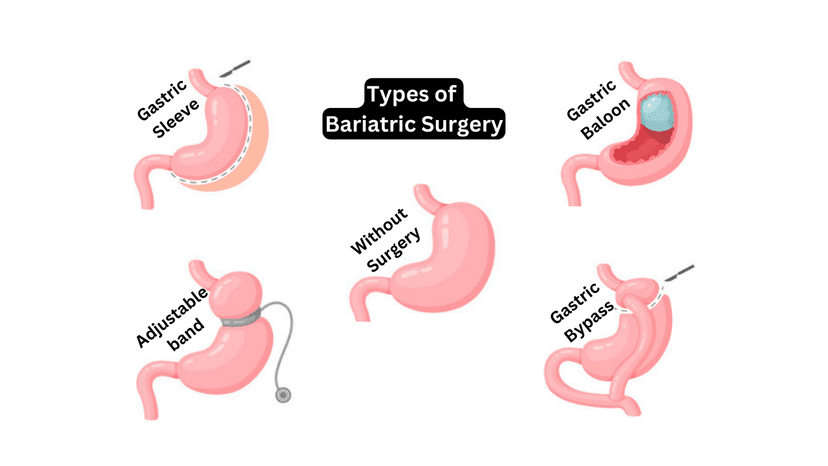Looking forward: Preventing weight regain and staying motivated

Understanding the Risk of Weight Regain
As you embark on your weight loss journey, it's crucial to understand that losing weight is only a part of the challenge. Maintaining the weight loss, and preventing weight regain, is often a more significant struggle faced by individuals post-weight loss surgery. This phenomenon, commonly referred to as weight regain, is often due to a complex interplay of factors.
Common Causes of Weight Regain
Primarily, weight regain tends to occur due to a combination of physiological changes, a return to unhealthy eating patterns, and a decrease in physical activity over time:
-
One of the physiological changes that contribute to weight regain is the body's adaptability to a diminished energy intake, which results in lowered resting metabolic rate, causing the body to conserve calories and resist weight loss over time.
-
More often than not, old eating habits creep back into an individual's routine, overriding the initial dietary changes made post-surgery. Unhealthy food choices, binge eating, or simply consuming more than what the body needs can contribute to regaining weight.
-
A decrease in physical activity over time is another major cause. Exercise is essential not only for weight loss but for maintaining the weight loss.
It's essential to be aware of these causes, as understanding these elements can be the first step to combating weight regain.
The Importance of Recognizing Early Signs
Recognizing the early signs of weight regain can make a significant difference in your weight loss journey. The sooner you identify these signs, the quicker you can implement strategies to get yourself back on track. Some early signs might include:
- Clothing becoming tighter
- Noticeable increase in portion sizes
- Skipping scheduled exercise sessions
- Increased emotional eating
These signs might seem minor, but they can snowball into substantial weight gain if not addressed promptly.
Psychological and Emotional Triggers
We must acknowledge the vital role emotions play in our eating habits. Emotional eating, where we consume food in response to emotions rather than hunger, is a less discussed but equally crucial aspect in the struggle with weight loss. Triggers often include stress, boredom, loneliness, anger, and sadness, among other emotions. Those struggling with emotional eating may find it beneficial to seek professional help like a therapist or counselor to develop healthier coping mechanisms that do not hinge on food.
In conclusion, preventing weight regain post a weight loss surgery involves a long-term commitment towards a healthy lifestyle. By understanding the risk of weight regain, recognizing the early signs, and addressing the psychological and emotional triggers, you can substantially mitigate this challenge and continue your journey towards health and wellness. It's essential to remember that weight loss and maintenance are lifelong commitments, and they require not mere short-term changes but a complete transformation of your lifestyle. The journey may be challenging, but the rewards of health, wellbeing, and self-confidence make it worthwhile.
Strategies for Maintaining Weight Loss
Weight loss is a challenge for many people, but keeping the weight off is often an even more considerable obstacle. If you've worked hard to shed excess pounds, it's crucial to take action to maintain your hard-earned weight loss and prevent weight regain. A balanced diet, regular physical activity, consistent monitoring of weight and eating habits, and the importance of seeking ongoing support from healthcare providers and support groups should be your main allies on this journey.
Nutritional Strategies for Sustained Weight Management
A sustainable and balanced nutritional plan is the foundation of maintaining weight loss. Many people fall into the trap of returning to old eating habits once they reach their desired weight. This practice is often detrimental, leading to weight regain. Key strategies include:
- Maintaining a balanced diet: Ensure your nutrition includes all major food groups, including fruits, vegetables, lean
proteins, and whole grains. Also, ensure you're eating the right portion sizes.
-
Avoiding 'diet' mentality: Instead of thinking of your eating plan as a temporary diet, view it as a new and healthier lifestyle.
-
Regular monitoring of eating habits: Keeping a food diary can help keep you honest and allows you to review and improve your eating habits if needed.
Incorporating Regular Exercise into Your Routine
An active lifestyle is another core element of successful weight maintenance. Regular physical activity contributes to offsetting any metabolic slowdown that accompanies weight loss and helps control hunger cues. Strategies for maintaining regular physical activity include:
-
Finding activities you enjoy: You'll be more likely to stick with exercise if you enjoy the activities. These might range from swimming and cycling to dance classes or team sports.
-
Scheduling your workouts: Treat your workouts like any other important appointment. Scheduling your exercise sessions makes it less likely that you'll skip them for other non-essential activities.
The Role of Continuous Self-Monitoring and Professional Support
Self-monitoring can play a crucial role in maintaining weight loss over time. Regular weighing, tracking food intake, and logging physical activity can help you spot trends, keep on track, and notice when behavior adjustments might be vital. However, it's also important to remember that the number on the scale is not the only measure of health.
Lastly, ongoing support from professional health providers and support groups can be invaluable. Seeing a dietitian or participating in a weight management group can provide you the right strategies for weight maintenance, focusing on long-term success rather than quick fixes. Regular check-ins with health professionals can help you adjust your plan if needed, providing tailored advice to your individual needs.
Remember that weight maintenance is a long-term process, much more a marathon than a sprint. Building these strategies into your lifestyle will support sustained weight loss and help you stay healthy in the long term.
Staying Motivated and Overcoming Setbacks
Weight loss is as much a mental challenge as it is a physical one. Along your journey to healthier living, there may be times when you feel like you've lost your motivation, or when setbacks feel like insurmountable obstacles. This section will provide strategies for maintaining and renewing your motivation, setting and adjusting realistic goals, celebrating milestones big and small, garnering the support of others around you, and effectively dealing with setbacks.
Setting and Adjusting Goals Over Time
Setting attainable, realistic goals is an integral part of the weight loss journey. Initially, it's important to remember that significant changes may not occur overnight. Patience and resilience will be your greatest allies. Start by setting short-term goals which are achievable, like eliminating processed foods from your diet or committing to a regular exercise routine.
As progress is made and confidence grows, adjust your
goals. Build on the success you've already achieved by gradually incorporating more challenging objectives. It's vital to continuously re-evaluate your goals over time, as your needs change or as progress may slow down. This ongoing readjustment can help to reignite motivation and can create milestones that work for you at every stage in your journey.
Celebrating Successes and Learning from Setbacks
With every goal, whether achieved or missed, there is an opportunity to learn and grow. Celebrate your successes as they come - they are a testament to your hard work and diligence. This could be as simple as acknowledging that you've stayed committed to your exercise plan or eaten a balanced diet. Be proud of these achievements and use them as positive reinforcement to continue your progress.
Setbacks are an inevitable part of the journey, but they're also not the end of it. Rather than letting setbacks demotivate you, treat these moments as a learning opportunity. Analyze what went wrong, identify potential changes, and renew your commitment to your health. It's fundamental to understand that setbacks are not failures—they're stepping stones providing valuable insights that pave the way to your ultimate goal.
Building a Network of Support for Motivation and Accountability
A strong support network can be instrumental in maintaining motivation and accountability during your weight loss journey. This could involve family and friends, a personal coach, a dedicated healthcare provider or a supportive online community. They can provide a listening ear, words of encouragement, or a tilting point helping you remain accountable to your commitments.
Additionally, consider joining group fitness activities or signing up for a local walking or running club. These spaces not only create a sense of community but also provide a shared stage of commitment, motivation, and progress.
Necessarily, the journey of weight loss and maintaining good health is not always straightforward. However, armed with the right strategies and attitudes for dealing with motivation, setbacks, and success, you can navigate it more effectively. Above all else, remember to be kind to yourself, celebrate your successes, and strong-mindedly confront any setbacks you encounter. The path of healthy living is indeed a marathon, not a sprint.
In Summary
To summarize the information provided in this blog post, the initial step towards preventing weight regain after weight loss surgery is understanding the physiological changes the body undergoes and the inclination towards old, sometimes unhealthy, eating habits and diminished physical activities. It's equally important to note the psychological and emotional triggers like emotional eating that can cause weight gain.
The maintenance and prevention of weight regain require continuous self-monitoring, regular physical activity and a commitment to a balanced diet that compliments your new lifestyle. The phenomenon of weight regain can be mitigated significantly by recognizing its early signs and continuously adjusting your eating habits and physical activity.
A support network, starting with healthcare providers and perhaps extending to social support groups, is instrumental for continuous motivation and accountability. Celebrating small victories and viewing setbacks as opportunities for growth instead of failures are also vital to staying motivated.
Here's a bullet-pointed action plan to help guide your journey:
-
Understand and acknowledge the risk of weight regain: Be aware of the physiological changes post a weight-loss surgery such as the body’s lowered resting metabolic rate and resistance to weight loss.
-
Recognize early signs of weight regain: Regularly monitor for signs of weight regain - tighter clothes, bigger meal portions, missing exercise sessions, and increase in emotional eating.
-
Consistently Monitor Your Diet: Maintain your commitment to a balanced diet and regular physical activity. Avoid 'diet' mentality, instead, view your eating plan as a new healthy lifestyle.
-
Maintain Regular Physical Activity: Find activities you enjoy to incorporate into your exercise routine and schedule your workout sessions as you would any other critical appointment.
-
**Early Recognition of Emotional
Eating Triggers:** Address your emotional triggers for eating and consider professional help to manage them.
-
Keep a Support Network: Garner ongoing support from professional health providers, make regular check-ins for guidance, and involve a personal coach, family, and friends.
-
Set Attainable Goals: Ensure your goals are realistic and adjustable as you progress in your weight loss journey. Celebrate the milestones and see any setbacks as opportunities to improve.
-
Be Resilient and Patient: Weight loss and maintenance is a marathon, not a sprint. Celebrate your small victories along the way, learn from your setbacks, and remember to practice kindness towards yourself.
By consistently implementing these strategies and adjusting them as needed, you can make sustainable and significant progress towards maintaining your weight loss and overall wellbeing.

